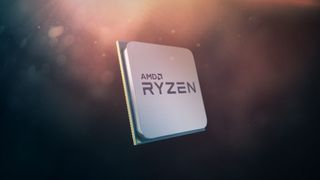AMD Ryzen 5000 leak shows a powerful APU to strike back at Intel’s Tiger Lake
Provides more concrete evidence of these laptop chips, hinting that they might be here soon

AMD’s Ryzen 5000 low-power APUs for laptops (known as ‘Van Gogh’) will boast Navi 2 (RDNA 2) integrated graphics and support for DDR5/LPDDR5 memory, according to details gleaned from Linux updates.
Phoronix spotted the Linux kernel patches which provide more concrete evidence than we’ve previously seen that these Ryzen 5000 mobile APUs will have RDNA 2 graphics, and be built on Zen 2, with LPDDR5 support (as indicated by a previous rumor on Twitter).
Furthermore, the Linux code confirms VCN 3.0 support for the Van Gogh chips (and support for AV1 decode).
- AMD boasts that Ryzen 4000 desktop CPUs will be ‘tremendously powerful’
- Here’s everything we know about AMD Zen 3
- Know what to buy: Best processors for 2020
Sooner rather than later?
This popping up in Linux now suggests that we could see these Ryzen 5000 chips sooner rather than later. Currently, their anticipated debut is early 2021, but maybe it’ll be very early 2021; perhaps at CES? Or could we see a reveal possibly even this year? Who knows, and of course all this is pure guesswork, although the latter still seems rather unlikely.
Whatever the case, Ryzen 5000 APUs for notebooks aren’t far away now, and will of course go up against Intel’s Tiger Lake CPUs which have already been revealed, and will start pitching up in laptops before the end of 2020 (we already know that some notebooks will be arriving in November).
These 11th-gen mobile chips from Intel look to be shaping up very impressively from what we’ve seen thus far, and of course come with Xe integrated graphics, which represents a big step forward for gaming on a laptop – and that’s why RDNA 2 graphics will be key for AMD with its incoming Van Gogh APUs.
LPDDR5 support will be an impressive boon too, and something that Tiger Lake doesn’t offer – at least not yet, although Intel has promised it will in the future.
Get daily insight, inspiration and deals in your inbox
Get the hottest deals available in your inbox plus news, reviews, opinion, analysis and more from the TechRadar team.
- These are the best AMD CPUs
Via Tom’s Hardware
Darren is a freelancer writing news and features for TechRadar (and occasionally T3) across a broad range of computing topics including CPUs, GPUs, various other hardware, VPNs, antivirus and more. He has written about tech for the best part of three decades, and writes books in his spare time (his debut novel - 'I Know What You Did Last Supper' - was published by Hachette UK in 2013).
